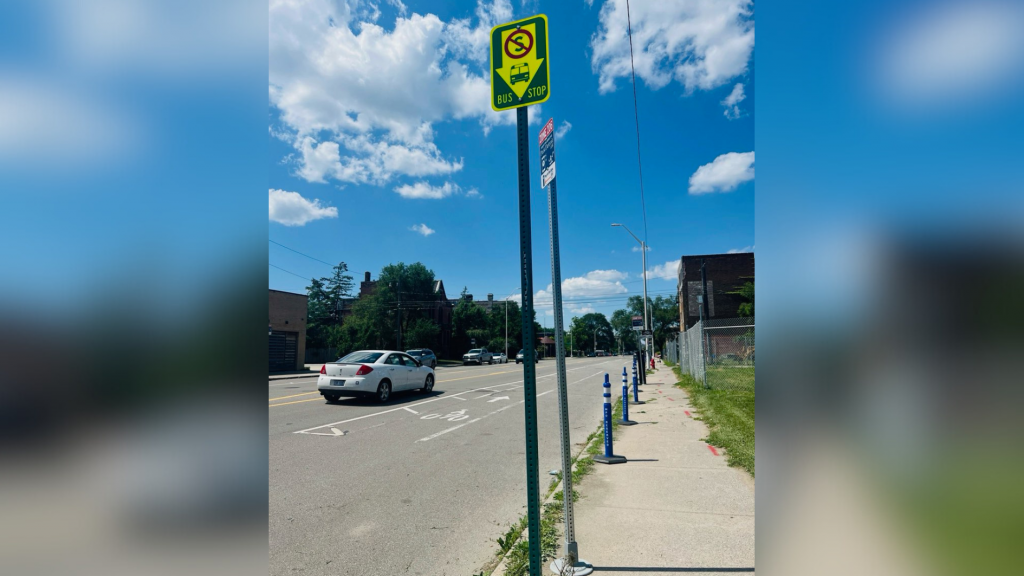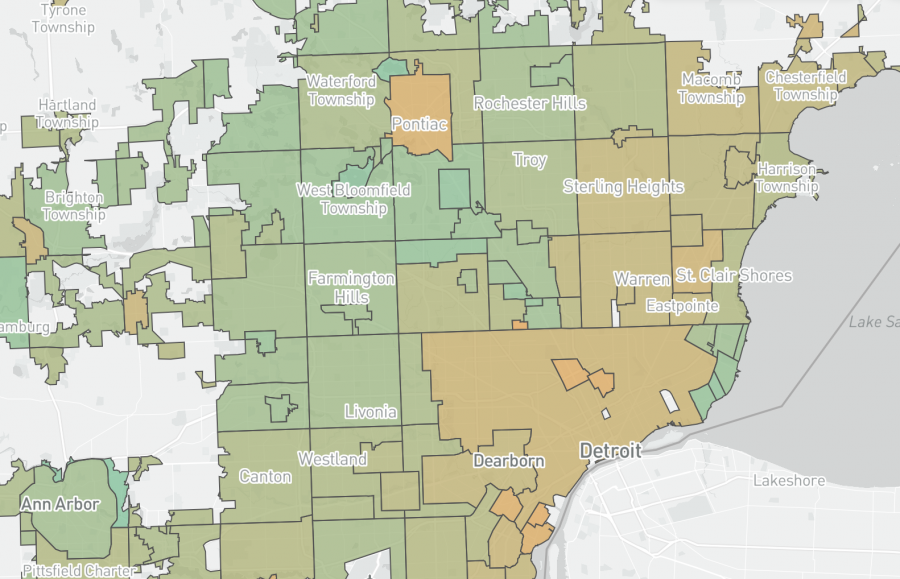Give ’em shade: Nearly 90% of Detroit bus stops lack adequate sun protection
Amanda LeClaire July 2, 2025A new data map from American Forests and the UCLA Luskin Center for Innovation is highlighting “shade deserts” across the U.S., including Detroit.

Heat is now the leading cause of weather-related deaths in the U.S. — with 12,000 lives claimed annually — and this number is expected to increase significantly by the turn of the century.
In large cities, temperatures in the summer can reach even higher than normal due to the “urban heat island” effect.
New data compiled by the nonprofit American Forests and the UCLA Luskin Center for Innovation identifies areas in cities across the United States that lack enough protection from the sun. These areas are known as “shade deserts.”

The new shade map covers more than 100 of the country’s biggest urban areas, including Detroit.
One effective way to stay cooler is by increasing shade, especially through planting trees, which can reduce the effects of high temps significantly. But according to American Forests a lack of shade in Detroit — especially at bus stops and along roadways — is harming thousands.
Less than 60% of households in Detroit have air conditioning, said Chris David, vice president of GIS & Data Science at American Forests. Additionally, he says those using public and alternative transit are even more at risk of heat-related illness and death.
“I think there’s about 5,000 bus stops in Detroit,” David said. “About 90% of those 5,000 bus stops have poor shade.”
He says bus shelters provide “very little” sun protection, with only about 5% of bus stops in the city covered.
“That means we estimated about 85,000 daily transit riders in Detroit….they’re left exposed to the sun when they’re waiting for the bus… and that can have dire effects,” David said.
David says Detroit will benefit from a strategic plan to increase the tree canopy, with groups like the Greening of Detroit working toward that goal in partnership with city government.
You can view the American Forests/UCLA Luskin Center for Innovation shade map here.
This story is part of WDET’s ongoing series, The Detroit Tree Canopy Project.
Trusted, accurate, up-to-date.
WDET strives to make our journalism accessible to everyone. As a public media institution, we maintain our journalistic integrity through independent support from readers like you. If you value WDET as your source of news, music and conversation, please make a gift today.Donate today »
Author
-
 Amanda LeClaire is an award-winning journalist and managing editor and lead reporter of WDET's new environmental series, the Detroit Tree Canopy Project, as well as WDET's CuriosiD podcast. She was the host of WDET’s CultureShift and a founding producer of the station’s flagship news talk show *Detroit Today*. Amanda also served as a Morning Edition host at WDET and previously worked as a host, audio and video producer, and reporter for Arizona Public Media.
Amanda LeClaire is an award-winning journalist and managing editor and lead reporter of WDET's new environmental series, the Detroit Tree Canopy Project, as well as WDET's CuriosiD podcast. She was the host of WDET’s CultureShift and a founding producer of the station’s flagship news talk show *Detroit Today*. Amanda also served as a Morning Edition host at WDET and previously worked as a host, audio and video producer, and reporter for Arizona Public Media.
